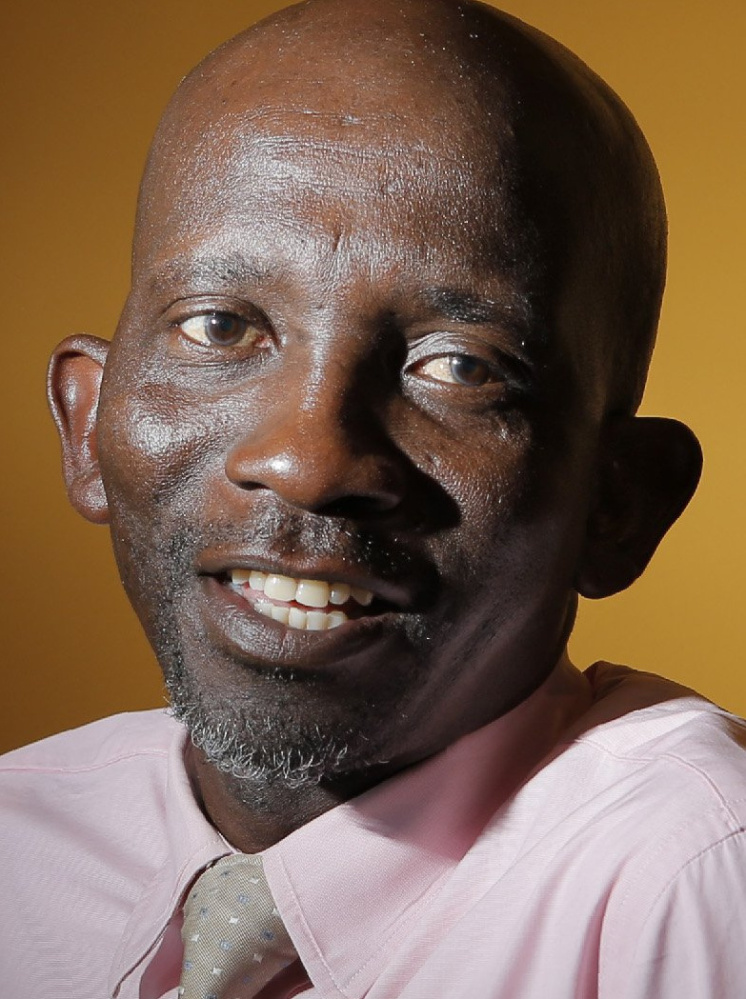A day after Portland voters tossed out two incumbent city councilors in favor of more progressive opponents, Mayor Ethan Strimling said the voters were sending a message: Act boldly to renovate the city’s elementary schools, enact tenant protections and change the rules around providing tax breaks to local businesses.
“I do think there is a call for change and a call for bold action from the City Council,” Strimling said Wednesday. “I think when you have two incumbents lose, you have to reflect a little to understand more deeply what’s going on.”
Several city councilors and City Manager Jon Jennings pushed back against that notion in interviews Wednesday, however, saying At-Large Councilor Jon Hinck and District 3 Councilor Edward Suslovic each lost for different reasons. Hinck was simply outworked and outmaneuvered by a likable opponent who began campaigning in March, while Suslovic’s penchant for taking controversial positions may have caught up with him, they said.
“I don’t see a big overriding message,” said City Councilor Jill Duson, whose term expires next year. “I think it reflects that Portland tends for vote for the person as a opposed to some litmus test on the issues.”
While many people expected School Board member Pious Ali to unseat Hinck, who had originally planned to run for state Senate, Brian Batson’s win over Suslovic surprised many, in part because the challenger has lived in Portland for only a year and has no political experience.
The turnover comes at a time when the council, mayor and city manager are at odds over the power structure of the elected mayor’s office and as it’s considering the significant policies around housing, schools buildings and tax incentives for businesses.
Jennings, who is responsible for running the city’s daily operations, said he does not interpret the election results as a directive for the city to change its posture over these issues, which so far has been cautious.
“I really do not take any overarching message from this election,” he said. “Elections are decided for a variety of reasons at both the local and national (level). It’s unfortunate we lost two very good members of the City Council, but I look forward to working with the two new councilors.”
Both Hinck and Suslovic have leveled criticism at Strimling’s apparent attempt to gain more access to and arguably control over city staff. The councilors were also fiscally conservative by Portland’s standards. Both men have been concerned about the city borrowing $70 million to renovate its elementary schools, while Hinck has voted against city budgets over concerns about property tax increases.
Both Batson, a 25-year-old nurse at Maine Medical Center, and Ali, a 47-year-old immigrant from Ghana and youth outreach worker for the University of Southern Maine’s Muskie School, supported raising the minimum wage, borrowing $70 million to renovate the city’s elementary schools and enacting tenant protections, including extending the notice landlords must give before increasing rent or not renewing a lease. Neither highlighted the issue of rising property taxes or concerns about taxes making the city unaffordable to people on fixed incomes.
City councilors have expressed concern that municipal affairs have become more political recently, with the Portland Democratic City Committee polling Strimling’s approval ratings and positions on issues pending before the council, including tenant protections, the school bond and requiring businesses getting local tax break to pay a livable wage and hire local owners. Additionally, the progressive Maine People’s Alliance endorsed council candidates – Batson and Ali – for the first time, spending nearly $3,000 in direct mailers. Some city councilors maintain that they will continue to evaluate proposals on their own merit, rather than outside political pressure, especially when it comes to city spending.
“These issues are not as simple as some people might use in sound bites,” Councilor Nicholas Mavodones said. “You have to look at what’s in the best interest of the city.”
Former City Councilor Cheryl Leeman also cautioned against reading too much into voter intent during an election overshadowed by a presidential race.
“There is absolutely no voter message … in Suslovic’s loss, except presidential voter demographics played well in a calculated, smart campaign by certain political operatives to unseat Ed because he was not in lock step with their agenda, and was an outspoken, independent mind on the issues, not self-serving with a specific politically motivated agenda,” Leeman said. “And Ed miscalculated all these factors as an incumbent.”
Some councilors have heard rumors that Strimling is looking to turn over the council so he has more influence. Strimling endorsed Ali in his bid to unseat Hinck, who remained neutral in last year’s mayoral race. The mayor refused to endorse Suslovic, even though the councilor’s endorsement, along with several others, helped get Strimling elected.
When asked whether Portland voters’ hunger for change would carry over into 2017, when three council seats open up, Strimling said it would all depend on the council’s actions in the coming year.
“If people think the council is responsive and putting solutions in place that are going to confront the biggest issues facing the city, then people will recognize that,” he said. “If not, then people will recognize that as well.”
Send questions/comments to the editors.




